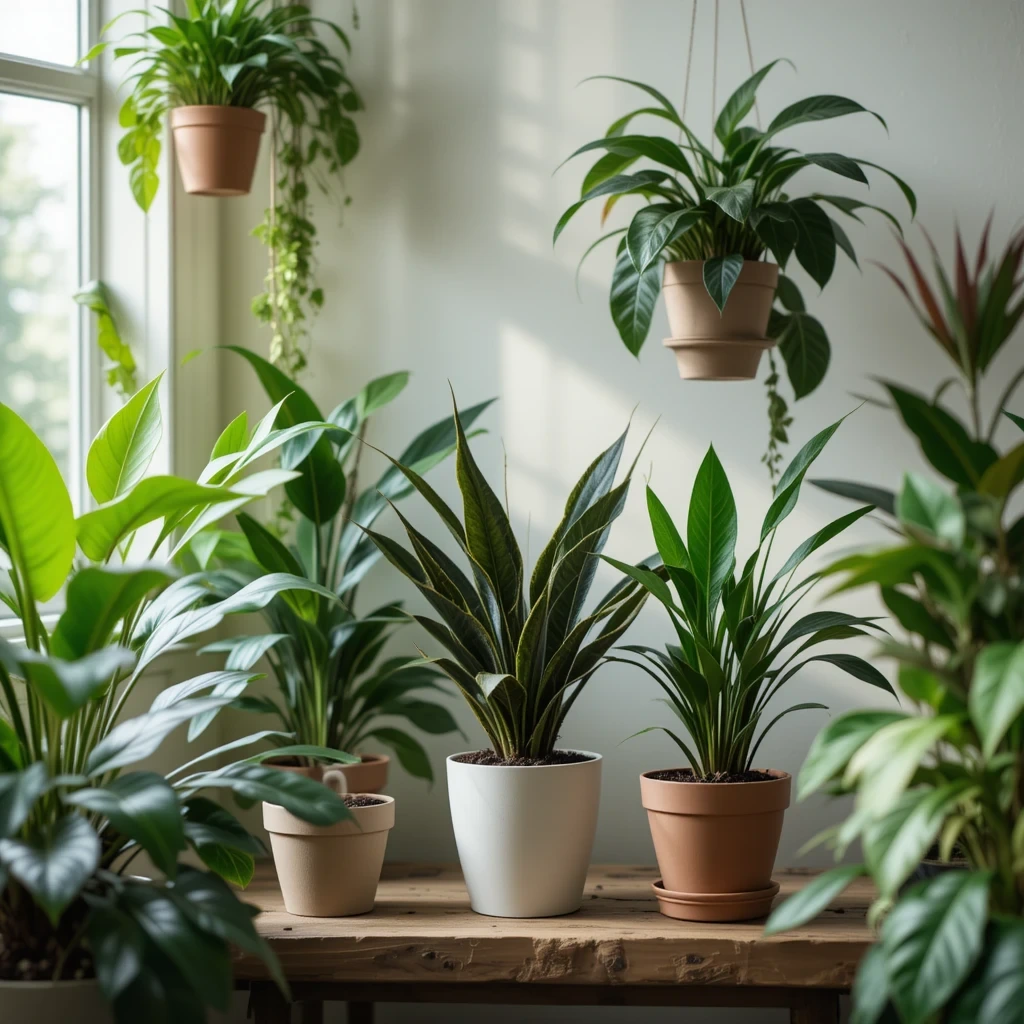
In today’s fast-paced world, mental health has become a major concern. Stress, anxiety, and depression affect millions of people worldwide. However, nature provides simple yet powerful remedies—one of which is incorporating indoor plants into your living space. Research shows that certain houseplants can improve mood, reduce stress, and enhance cognitive function. In this comprehensive guide, we’ll explore the best indoor plants for mental health and how they contribute to overall well-being.
The Science Behind Indoor Plants and Mental Health
Plants play a crucial role in enhancing mental wellness. Several studies highlight the psychological benefits of indoor plants, including:
- Stress Reduction: A study published in the Journal of Physiological Anthropology found that interacting with plants lowers stress and promotes relaxation.
- Improved Air Quality: Plants act as natural air purifiers by absorbing toxins and releasing oxygen, creating a healthier indoor environment.
- Increased Productivity and Focus: Greenery in workspaces has been linked to improved concentration and productivity.
- Enhanced Mood: The presence of plants helps in reducing feelings of anxiety and depression by providing a sense of calmness and connection to nature.
Best Indoor Plants for Mental Health

1. Snake Plant (Sansevieria Trifasciata)
- Benefits: Removes toxins from the air, improves oxygen levels, and enhances sleep quality.
- Care Tips: Requires minimal water and thrives in low-light conditions, making it perfect for beginners.
2. Aloe Vera
- Benefits: Purifies air, promotes relaxation, and has healing properties for minor burns and cuts.
- Care Tips: Prefers bright, indirect sunlight and requires minimal watering.
3. Lavender (Lavandula)
- Benefits: Known for its calming aroma, lavender reduces stress, anxiety, and enhances sleep quality.
- Care Tips: Needs plenty of sunlight and well-draining soil to thrive.
4. Peace Lily (Spathiphyllum)
- Benefits: Improves indoor air quality, reduces mold spores, and promotes a calming atmosphere.
- Care Tips: Thrives in low-light conditions and requires occasional watering.
5. Pothos (Epipremnum Aureum)
- Benefits: Removes toxins like formaldehyde and benzene from the air, improving overall well-being.
- Care Tips: Low-maintenance, grows in various lighting conditions, and requires occasional watering.
6. Spider Plant (Chlorophytum Comosum)
- Benefits: Absorbs carbon monoxide, increases humidity, and reduces airborne toxins.
- Care Tips: Thrives in indirect sunlight and needs watering once a week.
7. English Ivy (Hedera Helix)
- Benefits: Helps reduce mold spores, improving respiratory health and mental clarity.
- Care Tips: Prefers indirect light and moderate watering.
8. Rosemary (Rosmarinus Officinalis)
- Benefits: Enhances memory, reduces stress, and improves focus due to its natural scent.
- Care Tips: Requires ample sunlight and well-draining soil.
9. Bamboo Palm (Chamaedorea Seifrizii)
- Benefits: Adds moisture to the air, creating a soothing environment.
- Care Tips: Thrives in indirect light with consistent watering.
10. Boston Fern (Nephrolepis Exaltata)
- Benefits: Increases humidity, making it beneficial for individuals with dry skin or respiratory issues.
- Care Tips: Prefers indirect sunlight and regular misting to maintain humidity.
How to Arrange Indoor Plants for Maximum Mental Health Benefits
1. Create a Green Corner
Designate a space in your home where you place multiple plants together to create a relaxing environment.
2. Use Plants in Your Workspace
Adding a small potted plant to your desk can reduce stress and enhance concentration.
3. Incorporate Hanging Plants
Hanging planters with trailing plants like pothos or ivy add a peaceful ambiance without taking up floor space.
4. Enhance Your Bedroom with Plants
Placing oxygen-boosting plants like snake plants or lavender in the bedroom can improve sleep quality.
5. Use Aromatic Plants for Relaxation
Lavender, rosemary, and jasmine can help create a spa-like, stress-free atmosphere in your home.
Additional Tips for Taking Care of Indoor Plants
- Choose Low-Maintenance Plants: If you’re a beginner, opt for hardy plants like snake plants, pothos, or peace lilies.
- Maintain Proper Watering: Overwatering can lead to root rot. Stick to a watering schedule suitable for each plant.
- Ensure Sufficient Light: Different plants have different light requirements. Know your plant’s needs and place them accordingly.
- Clean the Leaves Regularly: Dust can accumulate on leaves, reducing their ability to photosynthesize. Wipe leaves with a damp cloth occasionally.
- Repot When Necessary: If a plant outgrows its pot, repot it to allow for healthy growth.
Incorporating indoor plants into your home or workspace is a simple and effective way to boost mental health. From reducing stress and anxiety to improving sleep and productivity, these natural companions offer a wealth of benefits. Whether you’re a beginner or a plant enthusiast, adding greenery to your surroundings can significantly enhance your well-being. Start with easy-care plants like snake plants or pothos and gradually explore other varieties that suit your space and lifestyle. Your mind—and your home—will thank you!




2 thoughts on “Best Indoor Plants for Mental Health”